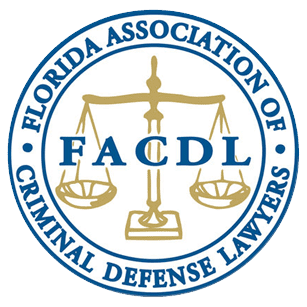Police in jurisdictions across the country are starting to amass databases of DNA samples in partnership with private laboratories. Officers are more frequently collecting these samples from people even though they have not been arrested for a crime, or even suspected of committing one. In these scenarios, people often feel as if they have no choice but to do as they are asked and provide a sample. However, that may not be the case. As always, you have the right to talk to counsel before submitting to a request from the police. You should consult with an experienced defense lawyer to make sure that your rights are protected. Attorney Erika Valcarcel can passionately and effectively advocate for you at any stage of the criminal process – even before you’ve been arrested or charged and are only under investigation.
Florida Statute on DNA Samples and Felony Charges
In 2009, Florida passed a statute that established a statewide DNA database for samples submitted by people convicted of or arrested for felony offenses and for those convicted of specific misdemeanor crimes. Under this law, any person arrested in Florida for a felony is required to submit a DNA sample at the time they are booked into a jail. The statute allows law enforcement to use reasonable force when such a person refuses to provide the required DNA sample. The state gets to keep the sample, even if there is no subsequent conviction and the court dismisses the felony charges.
However, this statute doesn’t address situations where the police ask for a sample from someone who hasn’t been arrested or charged with any offense.
Police Requests for Voluntary Samples
Law enforcement officers may stop you and ask for a DNA sample even if you are not suspected of any crime. They may do so purely to continue building their DNA sample databases, or they may be conducting a DNA dragnet to look for potential suspects to a crime in the vicinity. Under the law, these requests are purely voluntary, and officers must not attempt to coerce you into providing a sample under threat of being treated as a suspect. They should not employ tactics to mislead you into providing a sample, which may be a violation of your rights. People often feel like they have no choice but to provide the sample out of fear that refusing to do so may make them a suspect in a criminal investigation. However, if you provide a sample, the police will keep that sample in a database and you may not be able to get it removed. Additionally, refusing to voluntarily provide a sample by itself is likely not enough to support a warrant regardless of the suspicions of the police. Therefore, if you do not want to give a sample voluntarily in these situations, you have the right to refuse or ask to talk to a lawyer before doing so.
Talk to an Experienced Sarasota Criminal Defense Lawyer
Erika Valcarcel of Erika Valcarcel, Criminal Defense Lawyer, P.A. has experience in prosecuting criminal cases before she began her own criminal defense practice and knows the law and procedures in the criminal justice system well. She is a tireless advocate who can discuss your legal options with you in whatever criminal matter you may be facing, including the issue of providing DNA samples to the police, and help you decide the best strategy for your case.
Erika Valcarcel, Criminal Defense Lawyer, P.A. will work with you to protect your rights and achieve the best possible outcome in your case. If you live in the Sarasota area, us today at (941) 363-7900to schedule an initial consultation.
View All Blogs

